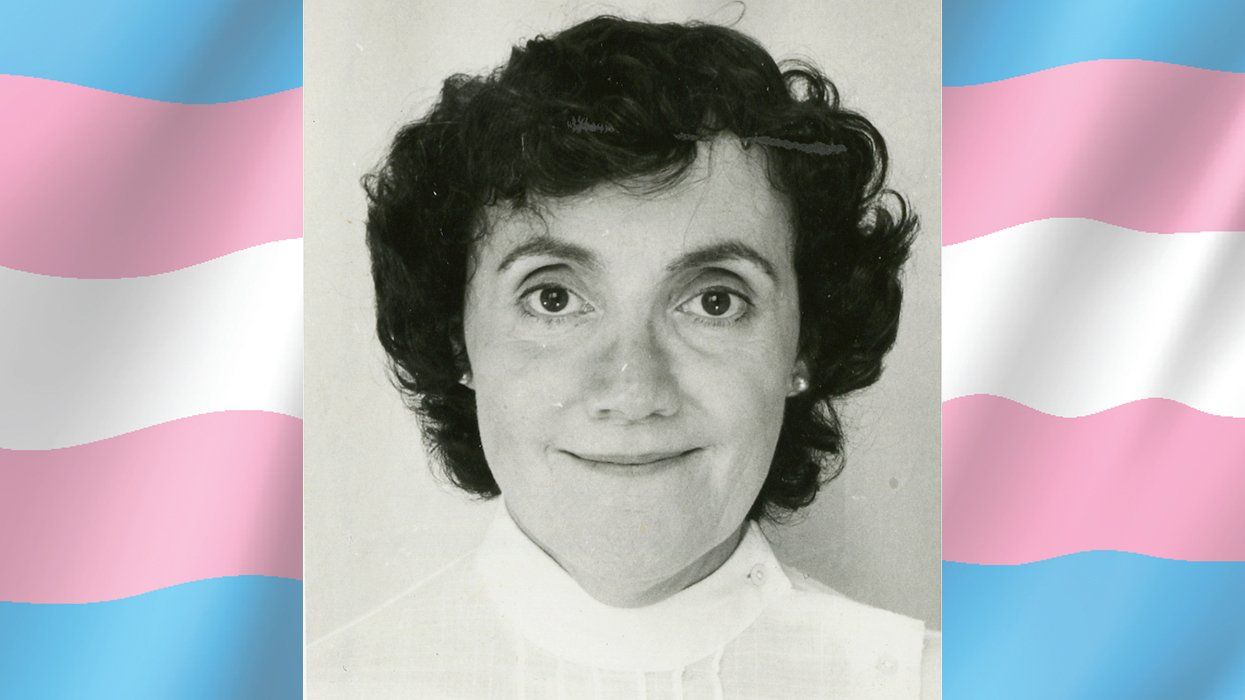Dr. Jeanne Hoff, a transgender psychiatrist who put her own gender transition procedure on film, has died at age 85.
Hoff died of Parkinson’s disease October 26 at her home in San Francisco, but her death is just now being widely reported. She was likely the first out transgender psychiatrist, The New York Times reports.
She was born into a working-class family in St. Louis in 1938 and attended that city’s Washington University on a partial scholarship. She received a master’s degree in science from Yale University and her medical degree from Columbia University. She then taught science at Washington University and did a residency in psychiatry there as well.
In 1976, she took over the New York City-based practice of Dr. Harry Benjamin, one of the first psychiatrists to treat trans people in a supportive manner. He had worked with groundbreaking gay sexologist Magnus Hirschfeld in Germany and then, in the U.S., treated Christine Jorgensen, among the first well-known trans people. Hoff eventually donated the practice's archives to the Kinsey Institute at Indiana University.
In 1977, Hoff underwent gender-confirmation surgery, accompanied by a camera crew. The footage became part of the documentary Becoming Jeanne: A Search for Sexual Identity, shown on NBC in 1978. Lynn Redgrave and Frank Field hosted. She put her transition on film partly to support and encourage her clients, many of whom were gay or trans, she said.
In the documentary, Field asked her, “How do you want us to accept you? What can we do?” notes Gay City News contributor Andy Humm, who knew Hoff. She responded, “Well, it may not be necessary for you to go to a lot of trouble to learn about accepting transsexuals if you have a general principle, and that is, mind your own business, I suppose. If you are meddling in the life and freedom of someone else, you ought to do so very cautiously and make sure that you’re entitled to do so and that they’ll be better off for your having been there.”
She added, “So if you take the position that people are all right until they have proved that they’re not, you’re not likely to harm them, and I’ll do my best to justify that confidence.”
Hoff was pioneering in many ways. “Dr. Hoff took other psychiatrists to task when they would help a man transition to be a woman and then insist that as a woman, the patient had to form intimate relationships with men and not be ‘gay,’” Humm writes. “Dr Hoff knew that erotic attraction was independent of gender identity and that there are, of course, trans women who are lesbians.”
In the 1970s, she also did a televised debate with antigay psychiatrist Charles Socarides, who was a proponent of conversion therapy. Socarides never wavered from his position that being gay was a mental illness, even though he had a gay son, Richard Socarides, who worked for President Bill Clinton.
Hoff closed her private New York City practice in the 1980s and then worked in hospitals in Brooklyn and upstate New York. Later, she moved to San Francisco and worked with formerly incarcerated people and in California prisons. She retired in 1999 after being attacked by a death row inmate she was counseling.
She has no immediate survivors. But she made history, Humm writes: “She was an unforgettable pioneer.”




































































Charlie Kirk DID say stoning gay people was the 'perfect law' — and these other heinous quotes